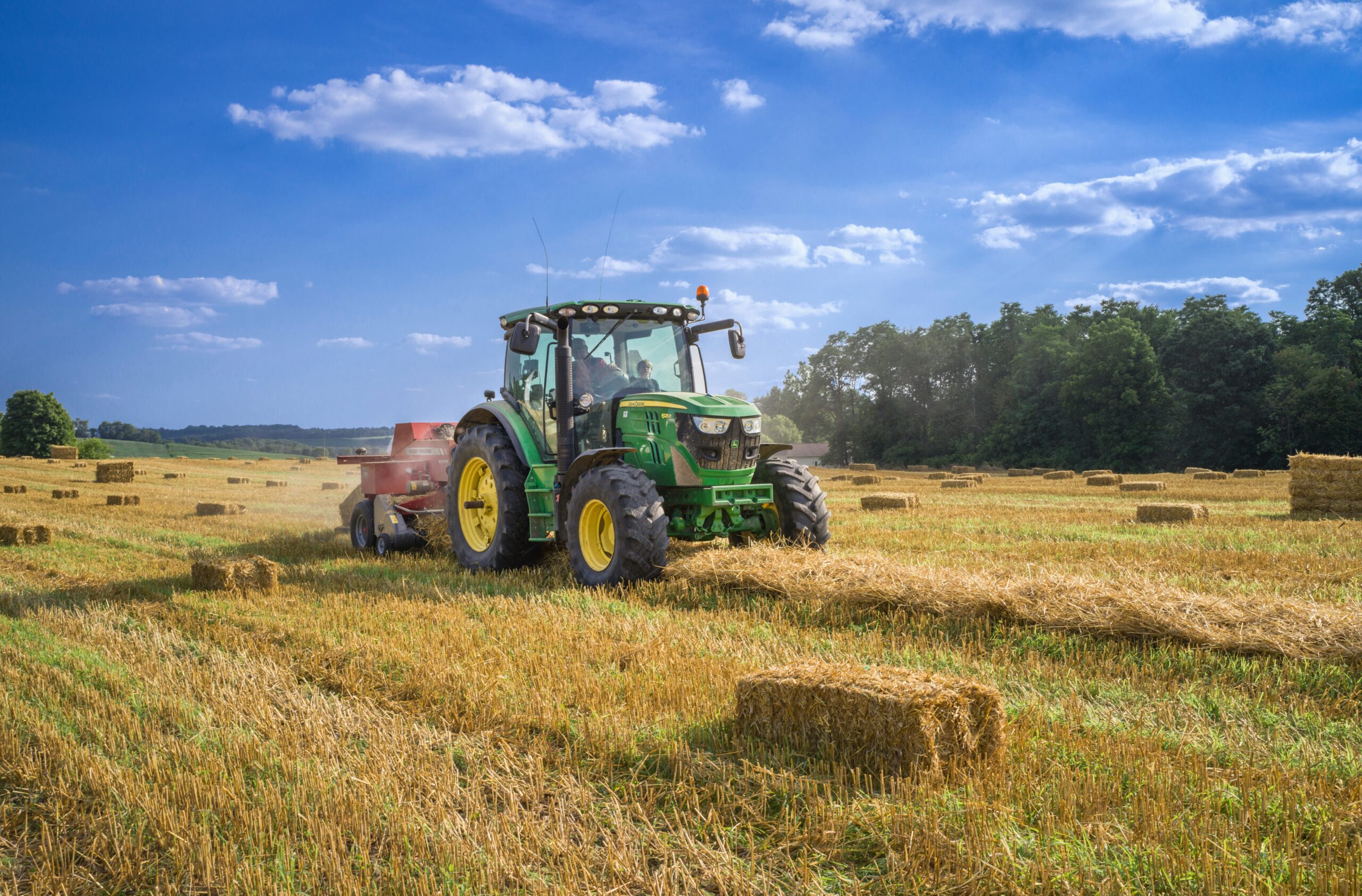Nigeria’s agricultural sector is a significant component of the country’s economy, contributing substantially to its Gross Domestic Product (GDP).
The sector employs a sizable portion of the labor force and produces a variety of crops, livestock, and fishery products.
Agriculture has the potential to play a crucial role in Nigeria’s economic growth and development, with opportunities for improvement in productivity, food security, and export earnings.
To achieve these goals, various initiatives have been implemented to support agricultural development, including funding programs for projects that aim to enhance the sector’s performance.
This article provides an overview of the process for accessing funding for agricultural development projects in Nigeria.
Who can apply for agricultural development funding?
Agricultural development funding is available to a wide range of individuals and organizations, including farmers and farmer groups, agricultural cooperatives and producer organizations, small and medium-sized enterprises (SMEs) involved in agriculture, and research institutions and universities conducting agricultural research.
These funding opportunities aim to support innovative and sustainable agricultural projects that can drive economic growth, improve food security, and reduce poverty.
To be eligible for funding, projects must meet certain requirements.
Firstly, they must introduce new or improved technologies, practices, or products that enhance agricultural productivity and sustainability. This could include initiatives such as precision farming, organic farming, or innovative irrigation systems.
Secondly, projects must have the potential to be scaled up or replicated in other areas, demonstrating a clear path to long-term sustainability. This means that projects must be designed to be adaptable and transferable to other contexts, with a clear plan for expansion and replication.
Thirdly, projects must demonstrate a clear and measurable impact on agricultural development, food security, and poverty reduction. This could include initiatives that improve crop yields, increase access to markets, or provide training and capacity-building for farmers.
Finally, projects must prioritize environmental sustainability, social responsibility, and economic viability. This means that projects must be designed to minimize environmental impact, promote social equity, and ensure economic viability over the long term.
To apply for funding, eligible beneficiaries must register and provide the required documentation.
This includes business registration and licensing documents, proof of land ownership or lease agreements, project proposals and budgets, environmental and social impact assessments, and proof of previous experience and expertise in agricultural development.
It’s important to note that specific documentation requirements may vary depending on the funding agency or program, so it’s essential to carefully review the application guidelines and requirements before applying.
Funding Sources for Agricultural Development in Nigeria
Agricultural development is crucial for Nigeria’s economic growth and food security. However, funding is often a significant constraint for farmers, agricultural businesses, and research institutions. Fortunately, there are various funding sources available to support agricultural development in Nigeria.
Government Programs
The Federal Ministry of Agriculture and Rural Development is responsible for the development and implementation of policies for the agricultural sector in Nigeria.
The Ministry provides funding for various agricultural projects and programs, including the National Agricultural Development Fund (NADF), which aims to bridge the funding gap in Nigerian agriculture, support increased food production, and promote modern technologies and practices.
The Ministry also provides support for farmers and agricultural businesses through initiatives such as the Agricultural Transformation Agenda Support Program, which aims to improve the productivity and competitiveness of the agricultural sector.
National Agricultural Development Fund (NADF)
The National Agricultural Development Fund (NADF) is a government-funded program that provides financing for agricultural projects in Nigeria.
The Fund aims to bridge the funding gap in Nigerian agriculture, support increased food production, and promote modern technologies and practices. NADF provides financing for a range of agricultural projects, including crop production, livestock farming, and agro-processing.
The Fund also provides support for farmers and agricultural businesses through training and capacity-building programs and helps facilitate access to markets and credit facilities.
Bank of Agriculture
The Bank of Agriculture is a government-owned bank that provides financing for agricultural projects in Nigeria.
The Bank has disbursed billions of naira in loans to farmers and agricultural businesses and has supported the development of the country’s agricultural sector.
The Bank provides financing for a range of agricultural projects, including crop production, livestock farming, and agro-processing.
The Bank also provides support for farmers and agricultural businesses through training and capacity-building programs and helps facilitate access to markets and credit facilities.
International Funding Agencies
The International Fund for Agricultural Development (IFAD) is an international funding agency that has invested millions of dollars in agricultural projects in Nigeria.
IFAD has supported the development of the country’s agricultural sector through initiatives such as the Agricultural Transformation Agenda Support Program, which aims to improve the productivity and competitiveness of the agricultural sector.
IFAD also provides funding for smallholder farmers and rural communities and helps to promote sustainable agricultural practices and climate change mitigation.
World Bank
The World Bank is an international funding agency that has provided funding for various agricultural projects in Nigeria.
The Bank has supported the development of the country’s agricultural sector through initiatives such as the Agricultural Sector Development Program, which aims to improve the productivity and competitiveness of the agricultural sector.
The World Bank also provides funding for smallholder farmers and rural communities and helps to promote sustainable agricultural practices and climate change mitigation.
African Development Bank
The African Development Bank is an international funding agency that has provided funding for agricultural projects in Nigeria.
The Bank has supported the development of the country’s agricultural sector through initiatives such as the Agricultural Sector Development Program, which aims to improve the productivity and competitiveness of the agricultural sector.
The African Development Bank also provides funding for smallholder farmers and rural communities and helps to promote sustainable agricultural practices and climate change mitigation.
Private Sector Funding Options
Commercial banks in Nigeria offer financing options for agricultural projects, including loans and credit facilities.
Banks such as the First Bank of Nigeria and the United Bank for Africa have dedicated agricultural finance desks that provide financing for agricultural projects.
Impact investors, such as the Nigerian Impact Investing Platform, also provide funding for agricultural projects that have a positive social and environmental impact.
Grants are available from organizations such as the Bill and Melinda Gates Foundation and the Rockefeller Foundation for agricultural projects in Nigeria.
Commercial Banks
Commercial banks in Nigeria offer financing options for agricultural projects, including loans and credit facilities.
Banks such as the First Bank of Nigeria and the United Bank for Africa have dedicated agricultural finance desks that provide financing for agricultural projects.
These banks offer a range of financing options, including short-term and long-term loans, and provide support for farmers and agricultural businesses through training and capacity-building programs.
Impact Investors
Impact investors, such as the Nigerian Impact Investing Platform, provide funding for agricultural projects that have a positive social and environmental impact.
Impact investors seek to generate both financial returns and social or environmental impacts and provide funding for projects that align with their investment criteria.
Impact investors can provide financing for a range of agricultural projects, including crop production, livestock farming, and agro-processing.
Grants
Grants are available from organizations such as the Bill and Melinda Gates Foundation and the Rockefeller Foundation for agricultural projects in Nigeria.
These organizations provide funding for projects that align with their goals and objectives and can provide financing for a range of agricultural projects, including crop production, livestock farming, and agro-processing.
Grants can be used to support a range of activities, including research and development, training and capacity building, and project implementation.
How to Apply for Funding for Agricultural Development in Nigeria
Applying for funding for agricultural development in Nigeria can be a competitive process, but with the right guidance, you can increase your chances of success.
To begin with, it is essential to review the eligibility criteria for the funding source you are interested in.
This involves carefully studying the requirements and ensuring that your project or organization meets the necessary conditions, including location, project type, and budget size.
This step is crucial, as it saves time and resources by avoiding applications that do not meet the basic requirements.
Prepare a strong proposal.
Developing a comprehensive proposal is the next step in the application process. This involves outlining your project’s goals, objectives, and budget clearly and concisely.
The proposal should demonstrate a thorough understanding of the project’s impact and sustainability, as well as the potential risks and mitigation strategies.
It is essential to ensure that your proposal aligns with the funding source’s priorities and goals, demonstrating how your project will contribute to the development of the agricultural sector in Nigeria.
A well-structured proposal should include an executive summary, project description, budget breakdown, and appendices supporting the application.
Gather the required documents.
Before submitting your application, it is crucial to gather all necessary documents, including the project proposal, budget breakdown, business registration and license, tax clearance certificate, proof of land ownership or lease agreement, and environmental and social impact assessment (if applicable).
These documents provide evidence of your organization’s legitimacy, financial management, and project planning, which are critical factors in the evaluation process.
Ensure that all documents are up-to-date, accurate, and duly signed, as incomplete or inconsistent documentation can lead to disqualification.
Submit your application.
Once you have prepared your proposal and gathered all the required documents, it is time to submit your application.
Ensure you meet the deadline and follow the specified submission guidelines, which may include online or hardcopy submissions.
Double-check your application for completeness and accuracy, as errors or omissions can impact the evaluation process.
After submission, retain a copy of your application and supporting documents for future reference.
Follow Up
After submitting your application, it is essential to follow up with the funding source to confirm receipt and clarify any additional requirements.
This demonstrates your enthusiasm and commitment to the project, as well as your ability to communicate effectively.
Be prepared to provide additional information or clarification during the review process, which may involve responding to queries or attending interviews.
Timely and effective communication can significantly enhance your chances of securing funding.
Conclusion
Accessing funding for agricultural development in Nigeria is a crucial step towards improving the country’s agricultural sector.
Various funding sources, including government programs, international funding agencies, and private sector funding options, are available to support agricultural projects and initiatives.
To increase the chances of securing funding, it is essential to review eligibility criteria, prepare a strong proposal, gather required documents, submit a complete application, and follow up with the funding source.
Additionally, aligning your project with the funding source’s priorities, providing a detailed budget breakdown, demonstrating project impact and sustainability, and showing community engagement and support are vital factors in the evaluation process.



